| Srl | Item |
| 1 |
ID:
061979
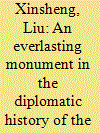

|
|
|
| 2 |
ID:
062017
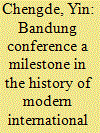

|
|
|
| 3 |
ID:
062508
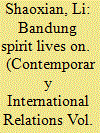

|
|
|
|
|
| Publication |
Jul 16, 2005.
|
|
|
|
|
|
|
|
|
|
|
|
|
|
|
|
| 4 |
ID:
061978
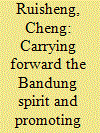

|
|
|
| 5 |
ID:
061977
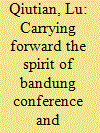

|
|
|
| 6 |
ID:
075126
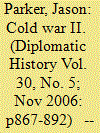

|
|
|
| 7 |
ID:
061368
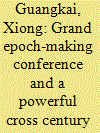

|
|
|
| 8 |
ID:
145523
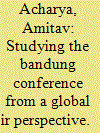

|
|
|
|
|
| Summary/Abstract |
Mainstream international relations scholarship has ignored or disparaged the significance and legacies of the Bandung conference. The author argues in favour of its importance, not only for any serious investigation into the evolution of the post-war international order, but also for the development of Global IR as a truly universal discipline: a global international relations. Few events offer more fertile ground for rethinking the established boundaries of international relations. After introducing the concept of a global international relations, the author then considers ways in which the conference’s key legacies challenge conventional accounts and attest to the ‘agency’ of the newly independent states in the making of the post-war international order. The legacies this section focuses on include frustration at Western attempts to ‘sabotage’ the conference; the delegitimisation of collective defence pacts and the development of the Non-Aligned Movement; the emergence of a South-East Asian regionalism; the strengthening of emergent global norms affirming decolonisation, human rights, universalism and the United Nations; and support for the ‘comity’, over the ‘clash’, of civilisations. The author also canvasses negative legacies of the conference, including the polarisation of Asia and the encouragement of authoritarian tendencies and regional interventionist impulses. The author concludes by drawing implications of the conference for the study of global international relations.
|
|
|
|
|
|
|
|
|
|
|
|
|
|
|
|
| 9 |
ID:
133478
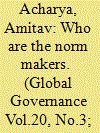

|
|
|
|
|
| Publication |
2014.
|
| Summary/Abstract |
It is increasingly recognized that the literature on norms, like that of international relations more generally, neglects or obscures the voices and role of non-Western actors. Part of the reason has to do with its relatively narrow conceptualization of agency: who are the norm makers and how do they create and diffuse norms? This article, drawing on the author's previous work on the subject, calls for a broader understanding of what norm making means and who should be considered as norm entrepreneurs. It then examines the debates and outcomes of the Asian-African Conference in Bandung in 1955 to illustrate some if not all of the key points about the normative agency of the developing countries in the construction of the postwar security order.
|
|
|
|
|
|
|
|
|
|
|
|
|
|
|
|